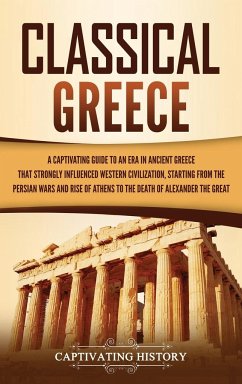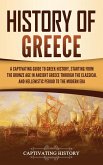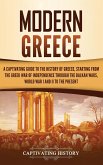Did you know that the classical Greek philosophers were the earliest people to believe that the earth was a sphere? Among them was Aristotle, the personal mentor of Alexander the Great, the man famous for conquering the whole (known) world. Classical Greece is a period of only two hundred years, but it is filled with exciting events that shaped the political thought of modern Western civilization. In these two hundred years, the idea of democracy was born and developed, although their concept of democracy was much different than in modern times. Through the development of the polis, the ancient Greek society developed into its recognizable form of those with political rights and those without them. With strictly defined social norms, the culture of classical Greece started developing in its own unique way. Art, architecture, tragedies, comedies, philosophy, athletic competitions, and religious ceremonies became recognizable staples of Greeks as citizens of their highly developed poleis. And although Greece was able to develop its culture during this period, its territory was ravaged by many conflicts. They started as an uprising to bring down tyrants and oligarchs and as a defensive effort to fend off the Persian Empire. With aspirations to add Greece to its multi-ethnic empire, the Persian kings constantly attacked, prompting Greece to unite. But once the threat of conquest passed, the Greeks turned against each other and fought wars to determine which polis should become the predominant one. Read the History of Classical Greece, and learn how an ancient civilization reshaped itself into a democratic society. Discover how Philip II and his son, Alexander the Great, united the whole Greek world into one force able to explore vast territories to the east, all the way to India. Among the pages of this book, you will find details such as:The structure of poleis and their politics Women's rights, or the lack of them Oligarchy, tyranny, and democracy through the lens of the ancient world How Greek poleis won their autonomy Why Athens rose to power How the Greeks educated their young What the relationship between the people and the gods was like How tragedy and comedy shaped popular opinion Why Sparta and Athens fought the Peloponnesian War How a kingdom in the north, Macedon, came to dominate the whole of Greece The conquest of Alexander the Great Flip the pages of History of Classical Greece, and let your mind rediscover the past of a civilization that shaped modern Western political thought.
Hinweis: Dieser Artikel kann nur an eine deutsche Lieferadresse ausgeliefert werden.
Hinweis: Dieser Artikel kann nur an eine deutsche Lieferadresse ausgeliefert werden.








